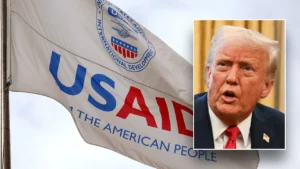On January 20, 2025, President Donald Trump signed Executive Order 14169, titled “Reevaluating and Realigning United States Foreign Aid,” which initiated a 90-day pause on all U.S. foreign development assistance programs. This decision aimed to assess whether existing aid initiatives align with the administration’s foreign policy objectives and national interests.
Objectives and Rationale
The executive order criticized the foreign aid sector, stating that it often operates in ways that are “antithetical to American values” and may “destabilize world peace.” It emphasized that U.S. foreign assistance should be strictly aligned with the nation’s foreign policy goals. Secretary of State Marco Rubio was tasked with overseeing the review process, with the directive that every program must be evaluated to determine if it contributes to making America “safer, stronger, and more prosperous” citeturn0search6.
Scope of the Suspension
The suspension affected a wide range of programs, including health, education, and agricultural initiatives. However, certain exemptions were made. Military assistance to countries like Israel and Egypt continued, as did emergency humanitarian aid, such as food and medical assistance citeturn0news16. Additionally, programs providing life-saving services, excluding those related to family planning or gender ideology, were allowed to proceed citeturn0search15.
Impact on Aid Organizations
The suspension led to significant disruptions for numerous non-governmental organizations (NGOs). Approximately 10,000 aid organizations, including those funded by the U.S. Agency for International Development (USAID) and the State Department, faced funding cuts. This affected global health programs, such as those combating AIDS, and other critical services citeturn0news17. Many organizations expressed concerns that the abrupt cessation of funding could lead to adverse outcomes, including increased disease transmission and loss of life.
Legal and Global Reactions
The decision prompted legal challenges from advocacy groups and lawmakers. Critics argued that the suspension infringed upon congressional authority over budget allocations and undermined longstanding bipartisan-supported programs. Internationally, the move raised concerns about the U.S.’s commitment to global development and humanitarian efforts. Some countries began seeking alternative funding sources, potentially increasing the influence of other global powers citeturn0search4.
Conclusion
